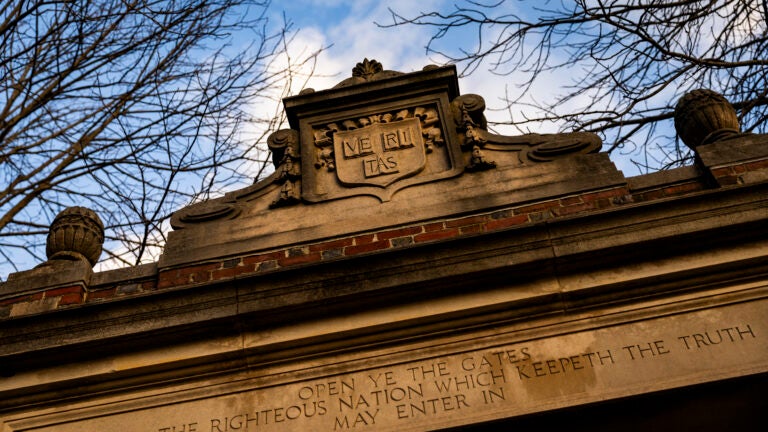Local News
Critics have argued that a mandatory statement about promoting “diversity, inclusion, and belonging” forces applicants to commit to a particular worldview.

Harvard’s Faculty of Arts and Sciences is reportedly doing away with a requirement that applicants for positions submit statements about their methods of encouraging “diversity, inclusion, and belonging.”
The change in policy was implemented over the spring semester and announced to faculty on Monday, The Boston Globe reported. The FAS includes Harvard’s whole undergraduate program and some of its graduate schools.
The Massachusetts Institute of Technology made a similar change earlier this year. MIT can “build an inclusive environment in many ways, but compelled statements impinge on freedom of expression, and they don’t work,” President Sally Kornbluth said in a statement to WBUR at the time.
The previous requirement at Harvard will be replaced with a “service statement” that will have applicants describe “efforts to strengthen academic communities, e.g. department, institution, and/or professional societies,” per the Globe. An explanation of efforts to promote diversity, equity and inclusion could be included in this, but it is not required.
The issue was the subject of two contrasting op-eds published simultaneously in The Harvard Crimson in early April.
In one, Harvard Law professor Randall Kennedy made the case that mandatory DEI statements should be eliminated. Kennedy, who describes himself as “a scholar on the left committed to struggles for social justice,” argued that candidates should “not be asked to support ideological commitments,” regardless of where they may fall on the left-right spectrum. But making DEI statements mandatory inherently forces applicants to profess support of leftist ideals, he wrote.
“Playing ball entails affirming that the DEI bureaucracy is a good thing and asking no questions that challenge it, all the while making sure to use in one’s attestations the easy-to-parody DEI lingo. It does not take much discernment to see, moreover, that the diversity statement regime leans heavily and tendentiously towards varieties of academic leftism and implicitly discourages candidates who harbor ideologically conservative dispositions,” Kennedy wrote.
In the other op-ed, philosophy professor Edward Hall argued that required DEI statements need to be reformed instead of abolished. Universities should train students and teachers to “engage across disagreement,” Hall argued. Those that agree should also see the value in diversity, since engaging across disagreement requires the diverse viewpoints that create disagreement in the first place.
It is crucial that members of this diverse community all feel a genuine sense of belonging, and that they have “equal standing to have their voices taken up, responded to, and engaged with.” Candidates should be asked their thoughts on realizing these values, Hall wrote. But the true issue at hand is a need to “reaffirm a healthy understanding of these values.”
“Furor over diversity statements in hiring is a red herring. I share my colleague professor Randall L. Kennedy’s anger. But I think we should direct that anger at its proper target: not diversity statements themselves, but rather the horribly distorted view that has taken hold about what they should contain,” Hall wrote, linking to an opinion piece in The Washington Post written by fellow Harvard professor Danielle Allen.
Both Hall and Kennedy are members of the Council on Academic Freedom, a faculty group. Some members of the group urged the FAS to eliminate mandatory DEI statements during the spring semester, according to the Globe.
The same group also pushed for Harvard to adopt a policy of “institutional neutrality,” meaning that administrators should refrain from making public statements on contentious social and political issues. Last week, Harvard announced that the university and its leaders will no longer release official statements about issues that “do not directly affect the university’s core function.”
Newsletter Signup
Stay up to date on all the latest news from Boston.com